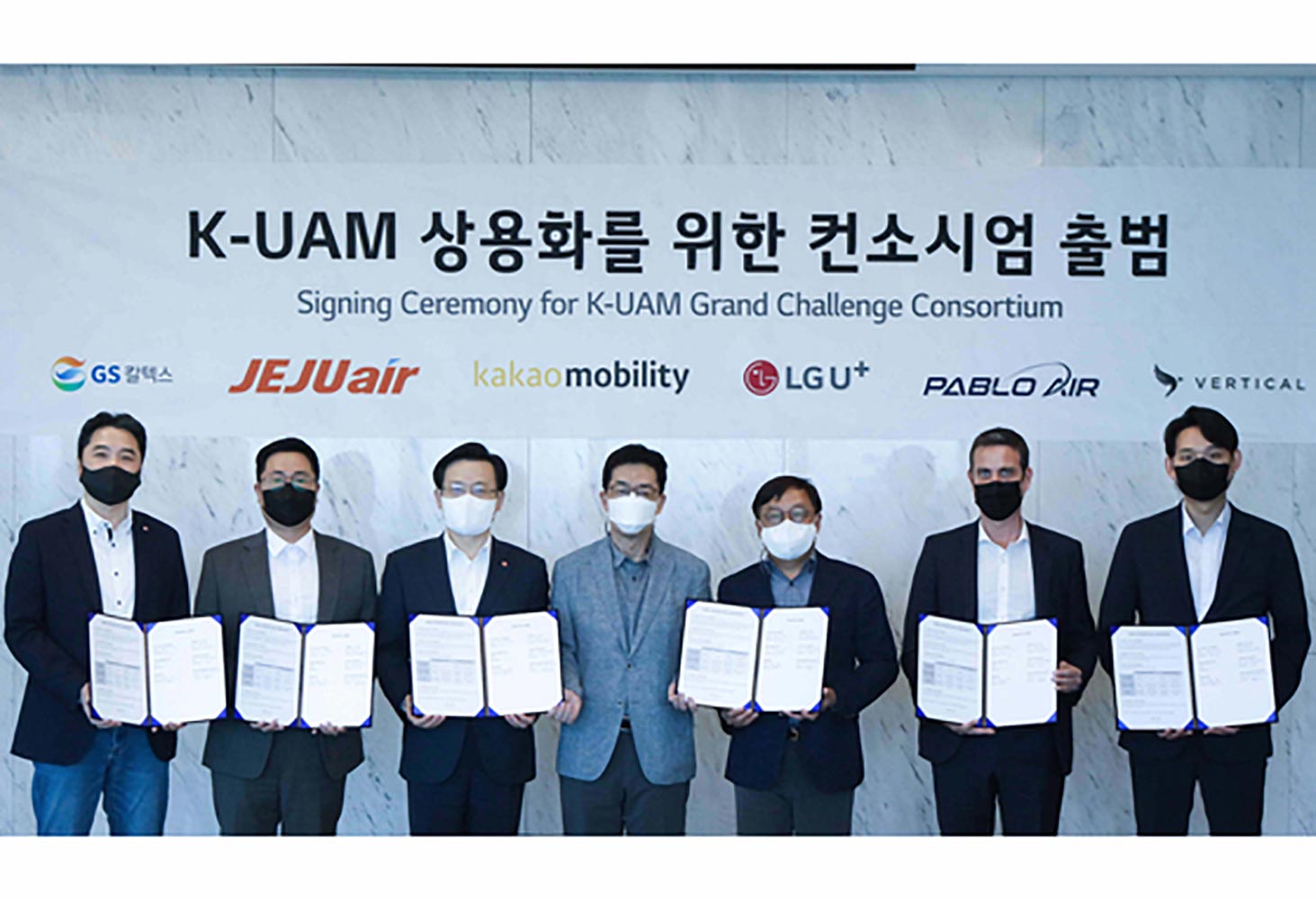
GS Caltex partners with leading mobility technology firms
South Korean oil refiner GS Caltex will partner with leading mobility technology companies to enter the Urban Air Mobility (UAM) service market.
GS Caltex is planning to build a UAM landing site, so-called ‘flying taxi’, by utilizing a network of gas stations distributed across the country, including downtown.
To this end, GS Caltex announced on May 11 that it had signed an agreement to form a UAM consortium with Kakao Mobility, LG U+, Jeju Air, Pablo Air, and Vertical Aerospace at LG Science Park in Gangseo-gu, Seoul, South Korea.
Companies participating in the consortium will participate in the first-phase of the demonstration project of the Ministry of Land, Infrastructure and Transport’s ‘Korean Urban Air Traffic Grand Challenge (K-UAM GC)’ to enter the early ecosystem of the UAM industry and further explore additional business opportunities in the UAM industry in the future.
The K-UAM GC Phase 1 demonstration project is a demonstration program that integrates flight safety and traffic management function tests with the goal of commercializing UAM in Korea by 2025. After going through this year’s participant selection process, they plan to start an open field demonstration flight next year.
Through this agreement, the companies participating in the consortium have decided to speed up the UAM business by sharing their respective expertise.
First, GS Caltex plans to build a UAM vertical take-off and landing site, Vertiport, by using a gas station network. Gas stations are evenly distributed throughout the country including the city center, and the open ceiling space makes it easy for aircraft to take off and land, making them suitable as UAM bases.
Kakao Mobility is in charge of building a Vertiport solution that implements automatic check-in and security search functions, and based on its know-how in operating the complete mobility service (MaaS) app ‘Kakao T’.
LG U+ plans to establish a traffic management system and stable communication service to prevent collisions between aircraft and obstacles by observing and controlling all movements so that UAM can operate safely.
Jeju Air will provide safe and reliable flight services based on the aviation expertise it has accumulated over the years, including aviation experts and flight-related systems.
Pablo Air is a drone solution and service company, and plans to build a UAM integrated flight control system using its know-how in developing a smart mobility integrated control system (PAMNet).
The aircraft to be used by the consortium will be manufactured by UK’s Vertical Aerospace. Vertical Aerospace is a global leading UAM aircraft manufacturer that has received pre-orders for the production of more than 1,350 electric vertical take-off and landing aircraft (eVTOLs) in the global market.
An official from GS Caltex said, “After this agreement, we will continue our efforts to commercialize UAM services by collaborating with companies participating in the consortium.”










